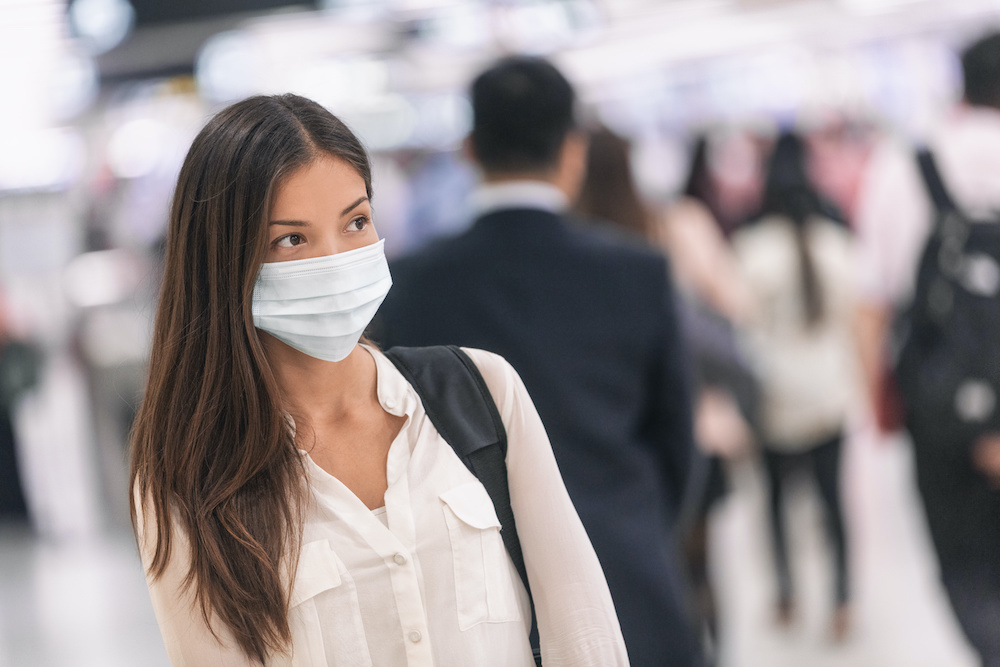
Adobe Stock
American Lung Association issued the following announcement on March 26.
As the global impact of COVID-19 increases, the scientific community continues to evaluate the clinical impact and healthcare needs of patients with lung disease, who are at increased risk for serious complications with COVID-19. The American Lung Association is supporting the health of those 36.6 million Americans living with a lung disease with science-based resources and support.
"COVID-19 is an infectious respiratory disease that can cause a pneumonia-like lung infection, with a range of symptoms from mild or absent for some to life-threatening for others," said American Lung Association Chief Medical Officer Albert Rizzo, M.D. "Everyone's health is at risk from COVID-19, and those living with a lung disease or who are immunocompromised may be more vulnerable to the impacts of the virus."
According to Rizzo, it's essential that those with a chronic lung disease like asthma or chronic obstructive pulmonary disease (COPD) stay on their maintenance medications and alert their healthcare provider of any changes in their health or symptoms. For all lung disease patients, including those with lung cancer who may be immunocompromised, patients should take precautions to avoid contact with the virus, including social distancing, thorough handwashing avoiding touching their face, nose, mouth and eyes and certainly avoiding contact with those who may have been infected or are showing symptoms.
"Changes in behavior, such as social distancing and practicing public health guidance, will be key to all of us staying healthy and out of the hospital," Rizzo said. "The healthcare system and hospitals are already stressed with admissions as a result of the pandemic. It's important for those with lung disease to use their best practices in managing their disease, including for example COPD, which is already a high-risk disease for readmissions to the hospital."
Rizzo also added that everyone should be careful, as even otherwise healthy adults are finding themselves hospitalized due to the virus. In fact, Centers for Disease Control and Prevention (CDC) data finds that nearly 40% of those hospitalized are between age 20 and 54.
As a respiratory disease, COVID-19 advances through the windpipe into the lungs where it can cause respiratory problems such as bronchitis and pneumonia. In severe cases, patients can develop acute respiratory distress syndrome (ARDS) that, in addition to oxygen, will require them to be placed on a ventilator. If too much of the lung is damaged and not enough oxygen is supplied to the rest of the body, respiratory failure could lead to multi-organ failure and death. The recovery rate and consequences from a severe COVID-19 illness will vary from person to person and there may be long-term damage to the lungs.
When asked what more can be done, Rizzo suggested slowing the spread of the disease in communities and efforts to quit smoking and vaping.
"Cigarette smoking and vaping are linked to lung inflammation and lowered immune function in the lung's airways both of which can increase likelihood of complications if exposed to COVID-19. Therefore, long-terms smokers and e-cigarette users may have a higher risk of developing chronic lung conditions associated with severe cases," Rizzo said.
The American Lung Association stands ready to help people beat their nicotine addiction with proven methods to quit, learn more at Lung.org/quit-smoking or call the Lung HelpLine at 1-800-LUNGUSA.
Learn more about COVID-19 at Lung.org/covid19 and call or email your questions to our experts at the Lung HelpLine (1-800-LUNGUSA).
For journalists seeking to schedule an interview with an expert about COVID-19, lung disease and lung health, contact Stephanie Goldina at the American Lung Association at 312-801-7629 or Media@Lung.org.
About the American Lung Association
The American Lung Association is the leading organization working to save lives by improving lung health and preventing lung disease through education, advocacy and research. The work of the American Lung Association is focused on four strategic imperatives: to defeat lung cancer; to champion clean air for all; to improve the quality of life for those with lung disease and their families; and to create a tobacco-free future. For more information about the American Lung Association, a holder of the coveted 4-star rating from Charity Navigator and a Gold-Level GuideStar Member, or to support the work it does, call 1-800-LUNGUSA (1-800-586-4872) or visit: Lung.org.
Original source can be found here.

